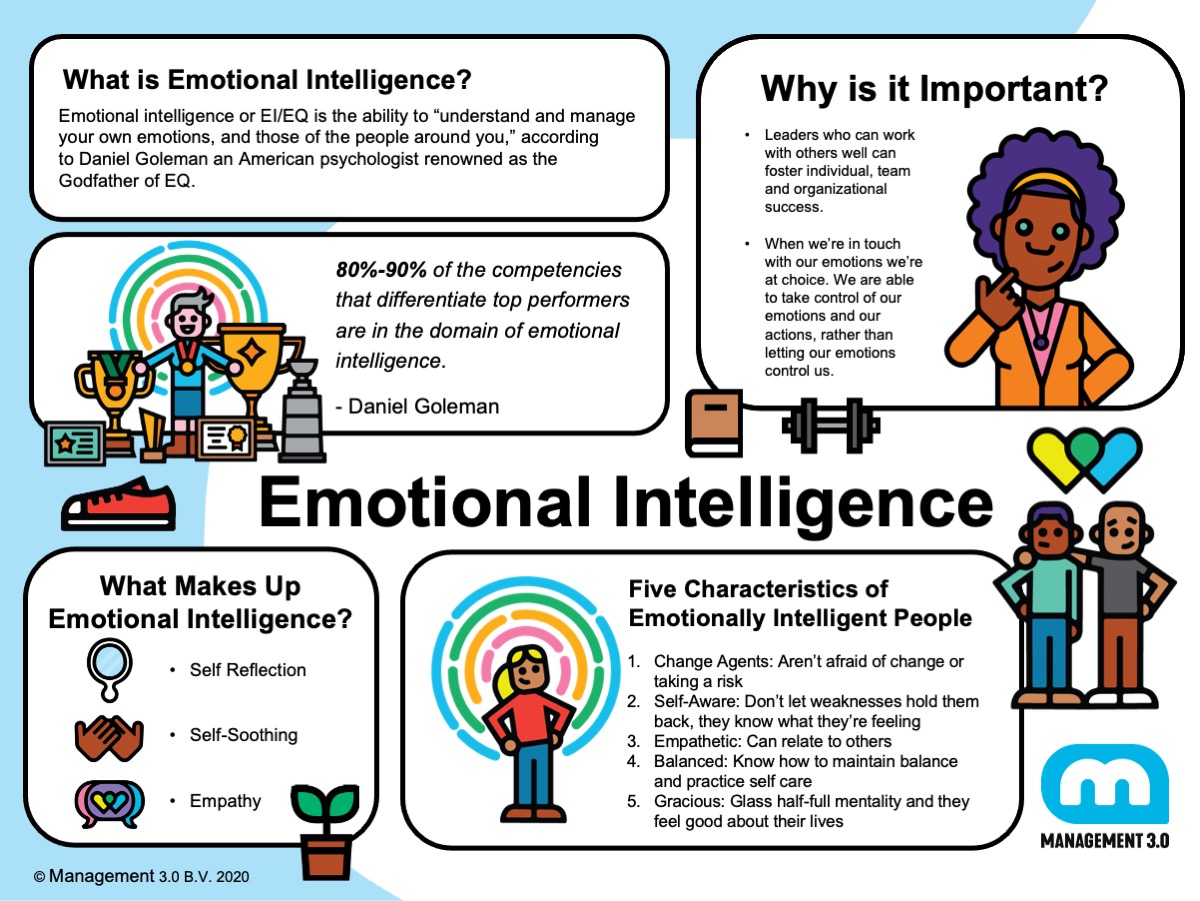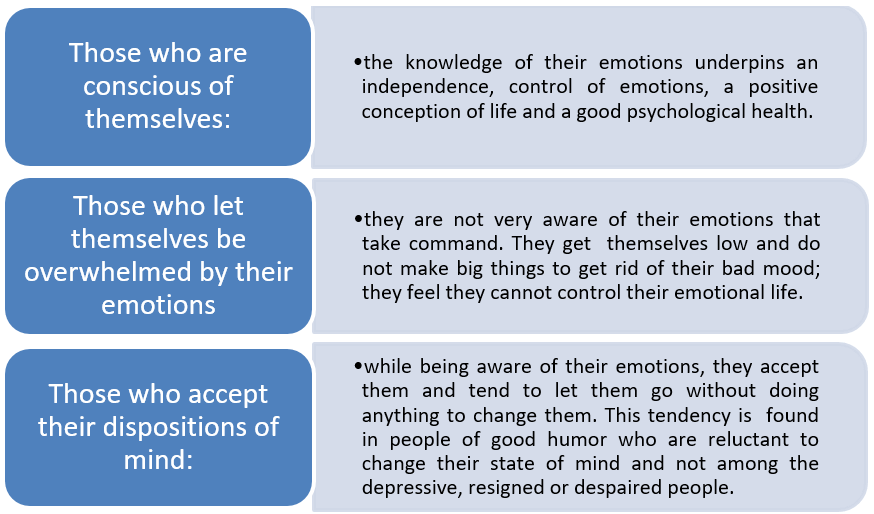Table of Contents
The Importance Of Self-awareness And Emotional Intelligence ... Denton TX
Increased self-awareness causes more self-care in medical trainees (Saunders et al., 2007) and a better understanding of one's strengths and abilities in addition to a boost to psychological intelligence in law students (James, 2011). A Take-Home Message In short, a little additional self-awareness can be of excellent benefit to anyone with the will to improve.

Do not forget to download our three Self Compassion Exercises free of charge. Council for Accreditation of Therapy and Associated Educational Programs. (2017 ). 2009 Standards. Retrieved from Dana, E. R., Lalwani, N., & Duval, S. (1997 ). Goal self-awareness and focus of attention following awareness of self-standard discrepancies: Changing self or changing requirements of correctness.

Duval, S., & Wicklund, R. A. (1972 ). A theory of unbiased self-awareness. Academic Press. Eurich, T. (2018, January 4). What self-awareness really is (and how to cultivate it). Harvard Organization Evaluation. Recovered from https://hbr. org/2018/01/ what-self-awareness-really-is-and-how-to-cultivate-it Goleman, D. (2001 ). Psychological intelligence: Concerns in paradigm structure. In C. Cherniss & D. Goleman (Eds.) The mentally smart office.
James, C. (2011 ). Law student health and wellbeing: Benefits of promoting psychological literacy and self-awareness utilizing mindfulness, strengths theory, and psychological intelligence. Legal Education Review, 21( 2 ). Ridley, D. S., Schutz, P. A., Glanz, R. S., & Weinstein, C. E. (1992 ). Self-regulated knowing: The interactive influence of metacognitive awareness and goal-setting. The Journal of Experimental Education, 60, 293306.

A., Tractenberg, R. E., Chaterji, R., Amri, H., Harazduk, N., Gordon, J. S., Haramati, A. (2007 ). Promoting self-awareness and reflection through an experiential mindbody skills course for first-year medical students. Medical Instructor, 29, 778784. Silvia, P. J., & Duval, T. S. (2001 ). Objective Self-Awareness Theory: Recent development and enduring problems.
Emotional Intelligence (Eq) Sunnyvale Texas
Silvia, P. J., & O'Brien, M. E. (2004 ). Self-awareness and positive performance: Revisiting "the Human Dilemma." Journal of Social and Scientific Psychology, 23, 475489. Sutton, A. (2016 ). Determining the impacts of self-awareness: Building and construction of the Self-Awareness Outcomes Survey. Europe's Journal of Psychology, 12, 645658. Sutton, A., Williams, H. M., & Allinson, C.
( 2015 ). A longitudinal, mixed-method examination of self-awareness training in the office. European Journal of Training and Development, 39, 610627. Trent, N. L., Borden, S., Miraglia, M., Pasalis, E., Dusek, J. A., & Khalsa, S. B. S. (2019 ). Improvements in mental and occupational health and wellbeing in a practical controlled trial of a yoga-based program for specialists.
Psychological Self-Awareness is the capacity to tune into your own feelings, sense inner signals, and recognize how your feelings impact you and your efficiency. It is an essential ability for management at any level, along with numerous aspects of life. The purpose of developing Emotional Self-Awareness is that it allows us to understand how our bodily experiences and our emotions impact ourselves, others, and our environment.
Therefore, the more we practice it, the more skilled we become and the higher our capability to recognize the area between stimuli and our reaction to that stimuli, guaranteeing a more mindful and skilled approach. Without Emotional Self-Awareness, it is challenging to become proficient in and regularly utilize the other Psychological and Social Intelligence Competencies.
This is the very first in a series of Guides that explores each of the 12 Psychological and Social Intelligence Management Competencies, with a comprehensive summary of the Competency Model itself. Daniel Goleman, Richard Boyatzis, Richard Davidson, Vanessa Druskat, and George Kohlrieser describe the Competencies: what they are, why they matter, and how to develop them.
Self Awareness & Mastery Of Emotional Intelligence Mesquite Texas

Overall length is 62 pages, plus citations. Soft cover. Saddle Stitched Extra primers in this series are:: worldwide known psychologist and author of Emotional Intelligence, Social Intelligence, and Dealing With Psychological Intelligence, Creator and Chair of the Center for Healthy Minds, University of Wisconsin-Madison and New york city Times bestselling author of The Emotional Life of Your Brain, worldwide acknowledged professional and specialist on group psychological intelligence and Partner Teacher of Organizational Habits and Management at the Peter T.
Much of us understand IQ (Intelligence Ratio). Created to measure intellectual intelligence, it offers a rating from a series of tests. Greater IQs show much better cognitive capabilities, or the capability to discover and comprehend. Individuals with higher IQs are more most likely to do well academically without putting in the very same quantity of psychological effort as those with lower IQ scores.
Table of Contents
Latest Posts
Emotional Intelligence - Self-awareness: The First Step In Leadership Engagement ... Addison Texas
Things You Can Do Today To Develop Emotional Intelligence Rockwall TX
Emotional Intelligence Allen TX
Navigation
Latest Posts
Emotional Intelligence - Self-awareness: The First Step In Leadership Engagement ... Addison Texas
Things You Can Do Today To Develop Emotional Intelligence Rockwall TX
Emotional Intelligence Allen TX